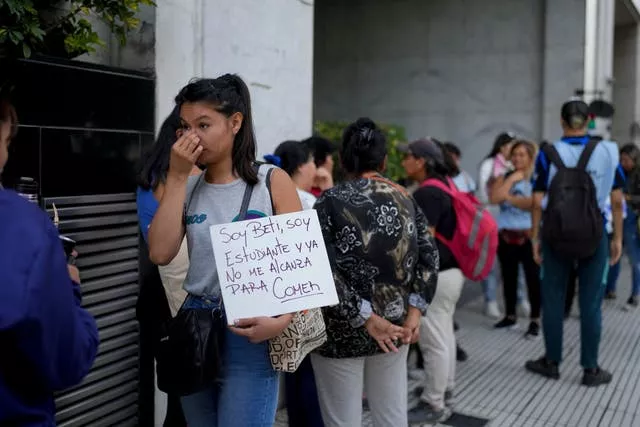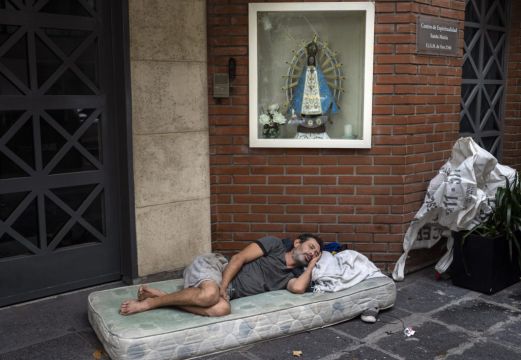Poverty levels in Argentina skyrocketed to 57.4% of the nation’s 46 million people in January, according to a study by the Catholic University of Argentina (UCA).
The underprivileged rate is now the highest number of Argentinians in 20 years.
The findings quickly unleashed accusations between Argentina’s former vice president, Cristina Fernandez de Kirchner, and the government of president Javier Milei, who came to power announcing a series of shock measures aimed at tackling the country’s severe crisis.
The study says about 27 million people in Argentina are poor, and 15% of those are considered to be in “destitution”, meaning they cannot adequately cover their food needs.
UCA’s social debt observatory is considered an independent and prestigious research space, with its reports on poverty covering a larger geographical area than those conducted by Argentina’s national statistics agency, the National Institute of Statistics and Census of Argentina.

It also applies a methodology that addresses the problem with a more multidimensional approach, and politicians and economists seldom question its findings.
According to the latest report, the increase in poverty levels in January was partly due to the devaluation of the Argentine peso, which was applied by Mr Milei’s government shortly after taking office on December 10.
The move increased the price of the country’s basic basket — which includes food, services and non-food goods — and the basic food basket.
The study concluded that middle-class households that do not receive benefits through social programs experienced the most significant impact.
Eduardo Donza, a researcher with the Social Debt Observatory, told The Associated Press that although inflation could slow in the coming weeks, rising prices will continue to impact Argentinians, and poverty would hit at least 60% of the population around March.
Mr Milei, an ultra-liberal economist who is implementing a series of shock measures, including a sharp reduction in public spending, said that the fact that “six out of every 10 Argentines are poor” constitutes “the true inheritance of the caste model,” which is what he calls the political class who has governed Argentina for the last 20 years.
He later said that his government “would give its life” to change Argentina’s socioeconomic reality.

Former vice president Fernandez de Kirchner attributed the poverty problem mainly to the policies of conservative president Mauricio Macri, who succeeded her in office, and to the adjustments applied by the current administration.
She said that starting in 2018, “with a debt in dollars and the return of the IMF (International Monetary Fund)… we went backwards”.
The reality presented by the study “shows that today we are worse off than in 2004”, Ms Fernandez de Kirchner said.
The government responded to Ms Fernandez de Kirchner, asking her to “be silent”.
Presidential spokesman Manuel Adorni said on Monday during his daily press conference that the former president is “one of the most relevant figures in the last 20 years of Argentina’s decline”.







